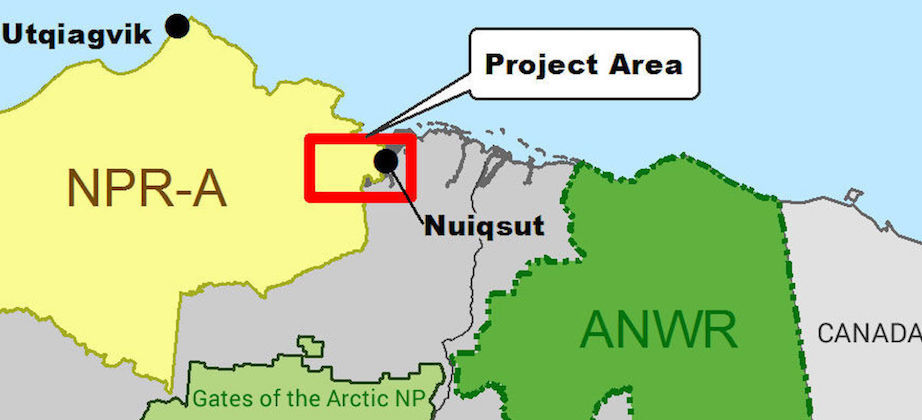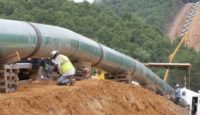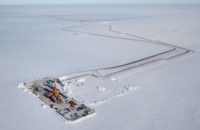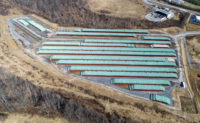Construction decisions set to be made later this year for the $3-billion first phase of oil giant ConocoPhillips’ oilfield development in the National Petroleum Reserve on Alaska’s North Slope could be delayed several years after a federal judge in Alaska threw out two permits for the initial project and a $3-billion follow-on phase.
U.S. District Judge Sharon Gleason, in an order issued Aug. 18, said the US Bureau of Land Management and US Fish & Wildlife Service failed to adequately analyze the Willow development’s effect on the region's climate and endangered species under the National Environmental Policy Act and the Environmental Protection Act before approving the permits. It would be located in the National Petroleum Reserve.
The oil company is considering its next step, which could involve a legal appeal, as are the agencies, which would have to have to revise their reviews of project impacts.
The judge ordered an injunction last November that stopped planned construction of gravel roads and drill pads planned for spring 2021 after the Center for Biological Diversity and the Sovereign Iñupiat for a Living Arctic challenged the permits. Engineering work has continued, however.
ConocoPhillips did not respond to a request for names of firms involved in the engineering. but in an online description of a vendor award it received from oil firm, Anchorage-based PND Engineers Inc. said the recognition is linked to work it did to assist with obtaining environmental permits.
PND was tasked with discovering 6 million cu yd of gravelly material required for the Willow project’s roads and pads. The company said it provided a geotechnical characterization of the project area using desktop analysis, geotechnical drilling programs and geophysical methods over the course of three winter seasons.
PND’s geotechnical investigation unearthed the materials needed, according to the firm, with other engineering services related to a 25-mile remote roadway that included seven bridge crossings with spans ranging from 40 ft to 400 ft, which was built to link ConocoPhillips facilities in the National Petroleum Reserve to the Willow development.
In her ruling, Gleason said she recognizes that vacating the permits "would have considerable economic consequences" for ConocoPhillips and "negative impacts" for stakeholders. Court documents say the firm has already invested about $500 million.
But she rejected the BLM permit under NEPA for excluding foreign greenhouse gas emissions in its review of project alternatives, calling the agency analysis arbitrary and capricious. “BLM acted contrary to law ... based on the view that ConocoPhillips had the right to extract all possible oil and gas from its leases,” the ruling said. Opponents said the project would produce 500 million metric tons of carbon dioxide if it operated.
BLM also failed to adequately analyze a reasonable range of alternatives for the Willow Project—a process that is “the heart of the environmental impact statement,” she said, noting potential project impact on Teshekpuk Lake, key to North Slope ecology.
In vacating Fish and Wildlife Service’s approval, the judge said it violated the law by not specifically identifying mitigation measures for endangered polar bears.
The project was approved by the Trump administration, with the Biden administration also supporting it, although Interior Secretary Debra Haaland previously did not. According to ConocoPhillips, the project is set to create more than 1,000 jobs during peak construction, and 400 permanent jobs.
“The Willow Project allows for the construction and operation of infrastructure needed to develop certain federal oil and gas resources,” the US Justice Dept. said in May. It noted the project was approved after years of analysis by federal agencies and input from the public. Justice said the federal agencies had complied with the requirements of the law, and that their permits should be upheld.
The judge's ruling brought a strong rebuke from Alaska, which had intervened in the lawsuit in support of the project. Gov. Mike Dunleavy (R) termed it "a horrible decision," in a statement. "We are giving America over to our enemies piece by piece," he said, referring to oil imported from other countries. The Willow project was estimated to produce 160,000 barrels a day, when completed.
Total project construction was estimated to take nine years and include five drill sites, a central processing plant and up to 37 miles of gravel roads and the seven bridges. It also includes up to 575 miles of ice roads during construction, an airstrip, 315 miles of pipeline, a gravel mine shaft and a freshwater reservoir.
Delaying the project will affect anticipated new oil for the Trans-Alaska Pipeline System, which is running at less than 25% of its original capacity, S&P Global said in its analysis.






Post a comment to this article
Report Abusive Comment